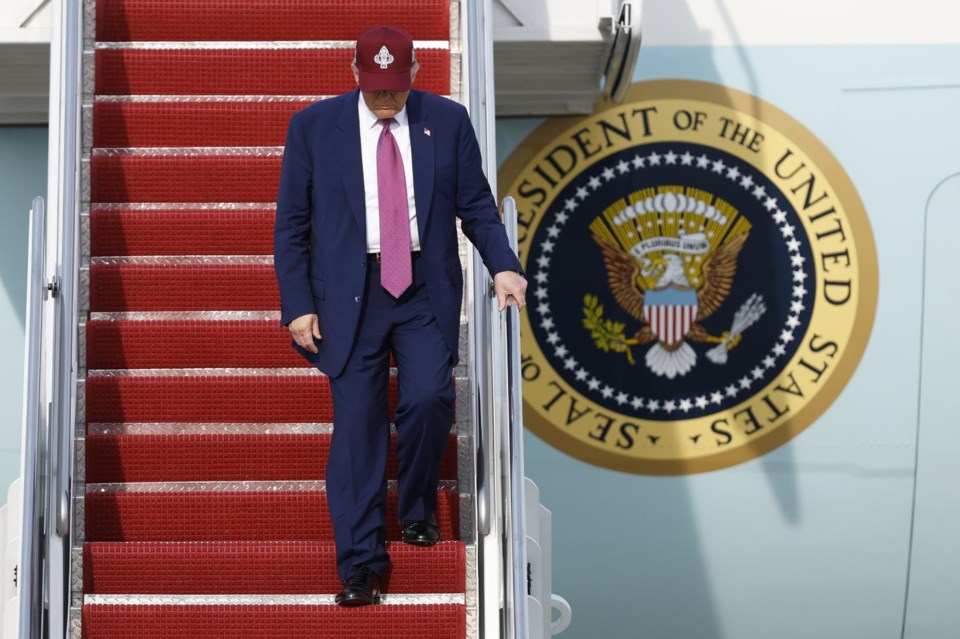Nearly all the members of a board overseeing the prestigious Fulbright scholarships resigned Wednesday in protest of what they call the Trump administration’s meddling with the selection of award recipients for the international exchange program.
A statement published online by board members said the administration usurped the board’s authority by denying awards to “a substantial number of people” who already had been chosen to study and teach in the U.S. and abroad. Another 1,200 foreign award recipients who were already approved to come to the U.S. are undergoing an unauthorized review process that could lead to their rejection, the board members said.
“To continue to serve after the Administration has consistently ignored the Board’s request that they follow the law would risk legitimizing actions we believe are unlawful and damage the integrity of this storied program and America’s credibility abroad,” the statement reads.
Congress established the Fulbright program nearly 80 years ago to promote international exchange and American diplomacy. The highly selective program awards about 9,000 scholarships annually in the U.S. and in more than 160 other countries to students, scholars, and professionals in a range of fields.
All but one of the 12 board members resigned, according to Carmen Estrada-Schaye, who is the only remaining board member.
“I was appointed by the president of the United States and I intend to fill out my term,” Estrada-Schaye said.
Fulbright scholars include recent U.S. college graduates who pursue further study or teach English overseas, American professors who spend a year at a university in another country and international scholars who come to the U.S. to study or work at universities here. Alumni of the program have gone on to serve as heads of state or government and have received Nobel and Pulitzer prizes. Notable alumni include Leslie Voltaire, president of Haiti’s transitional presidential council; Muhammad Yunus, chief adviser of Bangladesh; Luc Frieden, prime minister of Luxembourg; and King Felipe VI of Spain.
Award recipients are selected in a yearlong process by nonpartisan staff at the State Department and other countries' embassies. The board has had final approval. The recipients who had their awards canceled are in fields including biology, engineering, agriculture, music, medical sciences, and history, the board members said.
All the board members who resigned were selected under former President Joe Biden. The State Department, which runs the scholarship program, said they were partisan political appointees.
"It’s ridiculous to believe that these members would continue to have final say over the application process, especially when it comes to determining academic suitability and alignment with President Trump’s Executive Orders. The claim that the Fulbright Hayes Act affords exclusive and final say over Fulbright Applications to the Fulbright board is false. This is nothing but a political stunt attempting to undermine President Trump,” the department said.
The resignations were first reported by The New York Times.
The intervention from the Trump administration undermines the program's merit-based selection process and its insulation from political influence, the board members wrote.
“We believe these actions not only contradict the statute but are antithetical to the Fulbright mission and the values, including free speech and academic freedom, that Congress specified in the statute,” the statement said. “It is our sincere hope that Congress, the courts, and future Fulbright Boards will prevent the administration’s efforts to degrade, dismantle, or even eliminate one of our nation’s most respected and valuable programs.”
The announcement comes as the Trump administration ratchets up scrutiny of international students on several fronts. The administration has expanded the grounds for revoking foreign students' legal status, and recently paused scheduling of new interviews for student visas as it increases vetting of their social media activity. The government also has moved to block foreign students from attending Harvard as it pressures the Ivy League school to adopt a series of reforms. ___
This story has been corrected to reflect 11 of the 12 board members resigned, not all of them.
___
The Associated Press’ education coverage receives financial support from multiple private foundations. AP is solely responsible for all content. Find AP’s standards for working with philanthropies, a list of supporters and funded coverage areas at AP.org.
Cheyanne Mumphrey, The Associated Press




